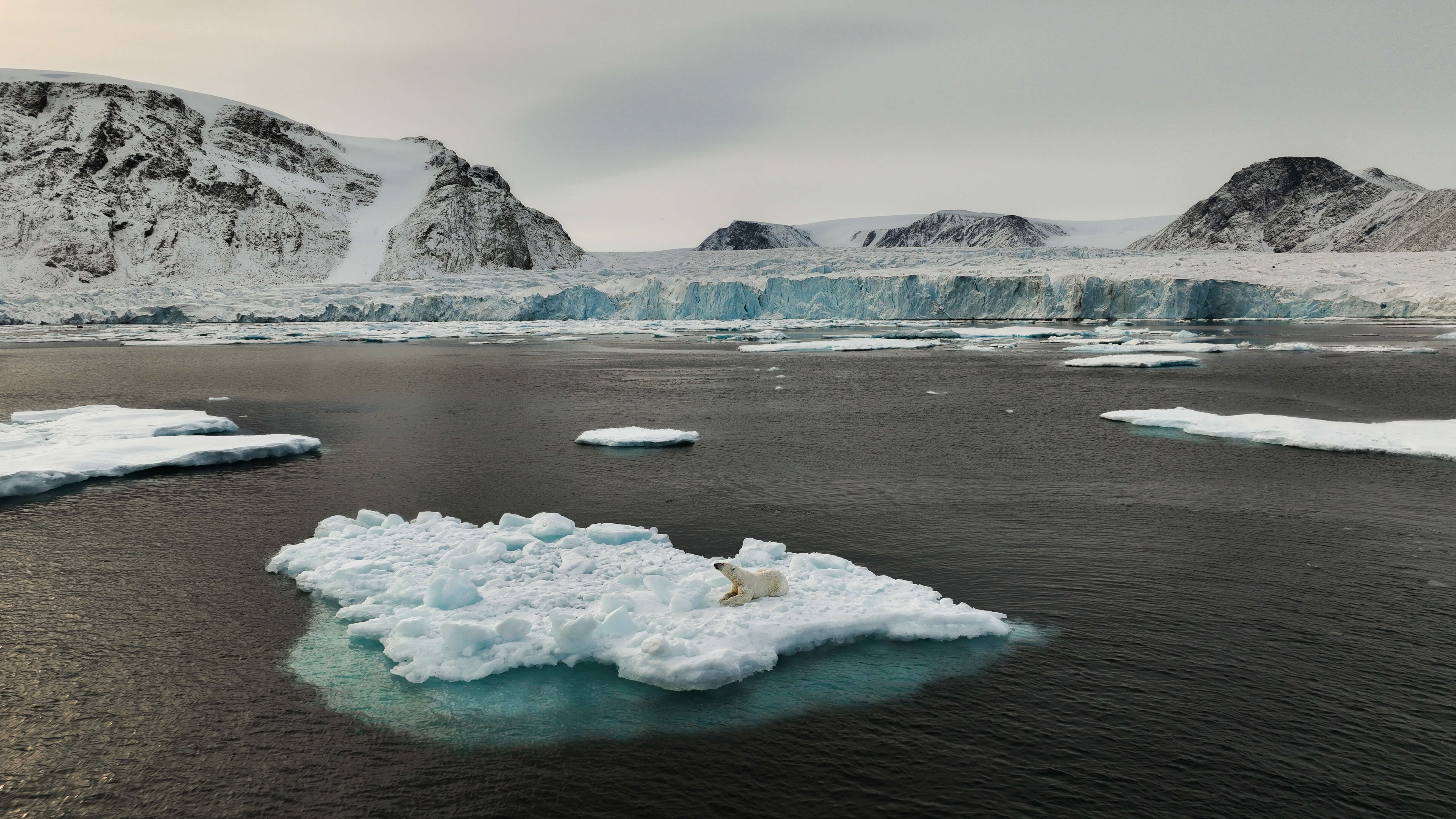Rising sea temperatures lead to reduction in polar bears since the last ice age
DNA from Greenlandic polar bears shed light on how their numbers have been dramatically influenced by changes in climate over the last several thousand years. Relatively small increases in sea temperature have had big consequences for the polar bear.

It is nothing new that polar bears in Greenland are threatened. A study just published shows that polar bears in Greenland has been declining in numbers for 20.000 years.
The new interdisciplinary study is led by Assistant Professor Michael Westbury and Professor Eline Lorenzen at the Globe Institute, University of Copenhagen.
We see a disturbing link between population decline and environmental changes. A relatively small increase in the sea surface temperature, and in turn a small reduction sea ice, resulted in a rather dramatic decline in the population of the polar bear.
The researchers has analyzed the genomes, skulls, and food choices of living polar bears to gain new knowledge into the evolution and ecology of the species around Greenland. They compared results to climate data and the amount of habitat available to polar bears since the end of the last ice age until present to understand how their environment shaped the polar bears we see today.
"Through our genomic analyses, we can open a window into the past to gain insight into the species' development and population history. Our analyses revealed that the number of Greenlandic polar bears significantly reduced several times since the last ice age," says Eline Lorenzen.
What caused these significant reductions in population? Well, according to Michael Westbury, there is a relatively simple explanation.
"It appears that rising sea temperatures drove these declines. When sea temperature rises, there is less sea ice, and thus fewer hunting, resting, and breeding opportunities for the bears," explains Michael Westbury.
What surprised the researchers and their colleagues the most was how much of an impact just a small change in the environment had for the polar bears.
"We see a disturbing link between population decline and environmental changes. A relatively small increase in the sea surface temperature, and in turn a small reduction sea ice, resulted in a rather dramatic decline in the population of the polar bear. The relationship is not linear," continues Eline Lorenzen.
The study was made possible through an international collaboration with colleagues from institutions in Greenland, Canada, Australia, Finland, Hong Kong, UK, and Denmark.
What does the future hold for Greenland's polar bears?
This work ultimately leads to the question, what will happen to Greenlandic polar bears in the next 50 years?
Due to increasing CO2 emissions, we have begun to experience the impact of global warming in the last several years – with Greenland being hit relatively harder than the rest of the world.
"The development is without scale compared to what the polar bear has experienced. Based on our results, combined with the worst case predictions, we can expect that the species will in no way thrive," says Michael Westbury.
However, all hope may not be lost. The males in East Greenland consume several different seal species, while the females eat ringed seals. This may be an adaptation to the relatively fewer resources available on the East coast of Greenland.
"We don't see that in West Greenland, where all bears primarily eat their favorite prey species, ringed seals. Due to the ocean currents, West Greenland has a significantly higher primary production than in the east, therefore more food is available for the polar bears and they can eat what they like," says Michael Westbury.
You can read the study "Impact of Holocene environmental change on the evolutionary ecology of an Arctic top predator" in Science Advances.
Contact
Professor Eline Lorenzen, University of Copenhagen
elinelorenzen@sund.ku.dk
+4526701024
Assistant Professor Michael Westbury
m.westbury@sund.ku.dk
+4529103090
Journalist og pressekonsulent Liva Polack
liva.polack@sund.ku.dk
+45 35 32 54 64
